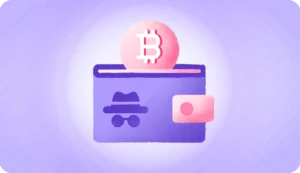Proton, known for its emphasis on cryptography rather than cryptocurrency, has just stepped into the crypto arena with a significant product launch. Their new offering, Proton Wallet, is designed to simplify the process of getting started with Bitcoin.
Why Proton Wallet Stands Out
At its core, Proton Wallet is a self-custody wallet, which means that users maintain full control over their private keys. Unlike many cryptocurrency exchanges like Coinbase or Binance, which handle these technical details for you, Proton Wallet ensures that the security and management of your keys are entirely in your hands.
The Basics of Self-Custody
When you send Bitcoin from one wallet to another, you’re essentially using a pair of public and private keys to authorize the transaction. With self-custody wallets like Proton’s, you’re responsible for these keys, and the wallet provides a recovery phrase to help you restore your wallet if something goes wrong, such as losing your device. This recovery phrase is a crucial backup, but it’s not without its risks—phishing attacks targeting these phrases are a common threat, so users need to stay vigilant.
Proton’s Unique Features
What sets Proton Wallet apart is its integration with Proton’s broader ecosystem, which boasts over 100 million accounts. This means you can send Bitcoin to other Proton Wallet users simply by entering their email addresses, avoiding the cumbersome process of dealing with lengthy public keys. Additionally, Proton has partnered with on-ramp companies like Banxa and Ramp, making it easy for users to purchase Bitcoin with fiat currency.
Privacy and Security
Proton Wallet also introduces a privacy-focused feature: rotating public addresses. Each time you transact, your wallet generates a new public address, which helps prevent your transaction history from being tracked on the blockchain. This feature enhances user privacy and reduces the risk of being targeted for attacks based on transaction patterns.
Looking Forward
Currently, Proton Wallet is available in early access for users subscribed to Proton’s Visionary Plan, which costs $39.99 per month. The company plans to make the wallet available to all Proton users in the future. Proton aims to make Bitcoin transactions as simple as using PayPal, while maintaining the decentralized, non-custodial nature of Bitcoin.
Overall, Proton Wallet is a promising tool for newcomers to cryptocurrency. It blends ease of use with robust security features, making it a noteworthy addition to the growing list of self-custody wallets.



